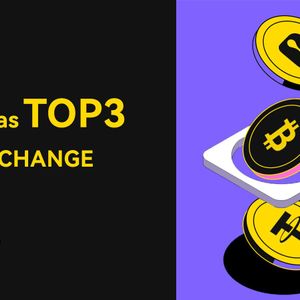On Tuesday, the Republican-controlled US Senate moved to wipe out a decade ‑long federal moratorium that had blocked states from regulating artificial intelligence. This change was tucked into former President Trump’s expansive tax‑cut and spending proposal, and approved almost unanimously in the early hours of the morning. Senators cast their ballots 99-1 in favour of removing the ban. The lone dissenting voice was Republican Senator Thom Tillis, who argued for keeping state oversight intact. Supporters of the move cheered the near‑unanimous margin as a win for consistency in AI policy, saying that a patchwork of state laws would stifle innovation and create confusion for developers. US Senate wants the bill to move fast before Congress breaks The decision came amidst a notoriously gruelling “vote‑a‑rama” session, an all‑night affair where lawmakers propose and debate a flurry of amendments to a single bill. Republicans hope the final package will clear both chambers and reach the president’s desk before Congress breaks for summer recess. This particular vote was one of dozens taken through the night, each amendment shaping the sprawling legislation in small but significant ways. Republican Senator Marsha Blackburn offered the key amendment to strike the AI provision entirely. “The current language is not acceptable to those who need these protections the most. Until Congress passes federally preemptive legislation like the Kids Online Safety Act and an online privacy framework, we can’t block states from making laws that protect their citizens.” – Tennessee Republican. Just a day earlier, she had negotiated a compromise with Senate Commerce Chair Ted Cruz that would have limited the preemption to five years and still let states enact rules on protecting artists’ work or shielding children online, provided they didn’t place an “undue or disproportionate burden” on AI firms. However, Blackburn pulled back her support for that deal, saying the pared‑down version still fell short of safeguarding vulnerable groups until a federal privacy and children’s safety framework comes into law. Major technology players in Silicon Valley, including Google and OpenAI, have lobbied for this kind of federal preemption. They argue that AI startups and established firms alike need uniform rules, rather than navigating a maze of state‑by‑state mandates. Critics, though, worry that without any state‑level checks, there could be gaps in protecting users’ privacy and rights. Meanwhile, the Senate version would have only barred states from using a newly proposed $500 million fund earmarked for AI infrastructure. Removing the ban means local governments might still tap that fund while pursuing their own regulatory agendas. Lawmakers face pressure to keep their ranks united as Trump takes a jibe at Musk Late‑night developments didn’t stop there. President Trump, chafing over criticism from Tesla CEO Elon Musk, took to Truth Social at 12:44 a.m. ET to mock Musk’s dependence on federal grants while pretending to oppose public spending. “Without subsidies, Elon would probably have to close up shop and head back home to South Africa,” he wrote. Adding a tongue‑in‑cheek nod to DOGE, the government efficiency group Musk once led. That post underlined a deepening rift between the former president and the tech community, particularly over the “big, beautiful bill,” which many innovators see as harmful to green energy and tech interests. Prior to Trump’s post, Musk had made a post on X on Republicans in Congress who support the President’s tax spending bill, threatening that they would lose their primaries next year. The 940-page document includes a $5 trillion increase to the debt ceiling while cutting federal aid programs. “Every member of Congress who campaigned on reducing government spending and then immediately voted for the biggest debt increase in history should hang their head in shame,” wrote Musk. The spending package itself now hangs by a thread. Overnight, Senators Lisa Murkowski of Alaska and Susan Collins of Maine signalled they’re undecided, potentially joining the two already opposed Republicans and threatening to sink the legislation. With time running short before the August recess, GOP leaders face pressure to keep their ranks united, or risk the whole effort collapsing. Despite the drama, one thing is clear: the fate of AI regulation and the broader spending package remain uncertain. As summer wears on, lawmakers will have to reconcile technology’s rapid advance with both federal authority and state‑level protections, no small task in today’s polarized environment. Cryptopolitan Academy: Tired of market swings? Learn how DeFi can help you build steady passive income. Register Now


















